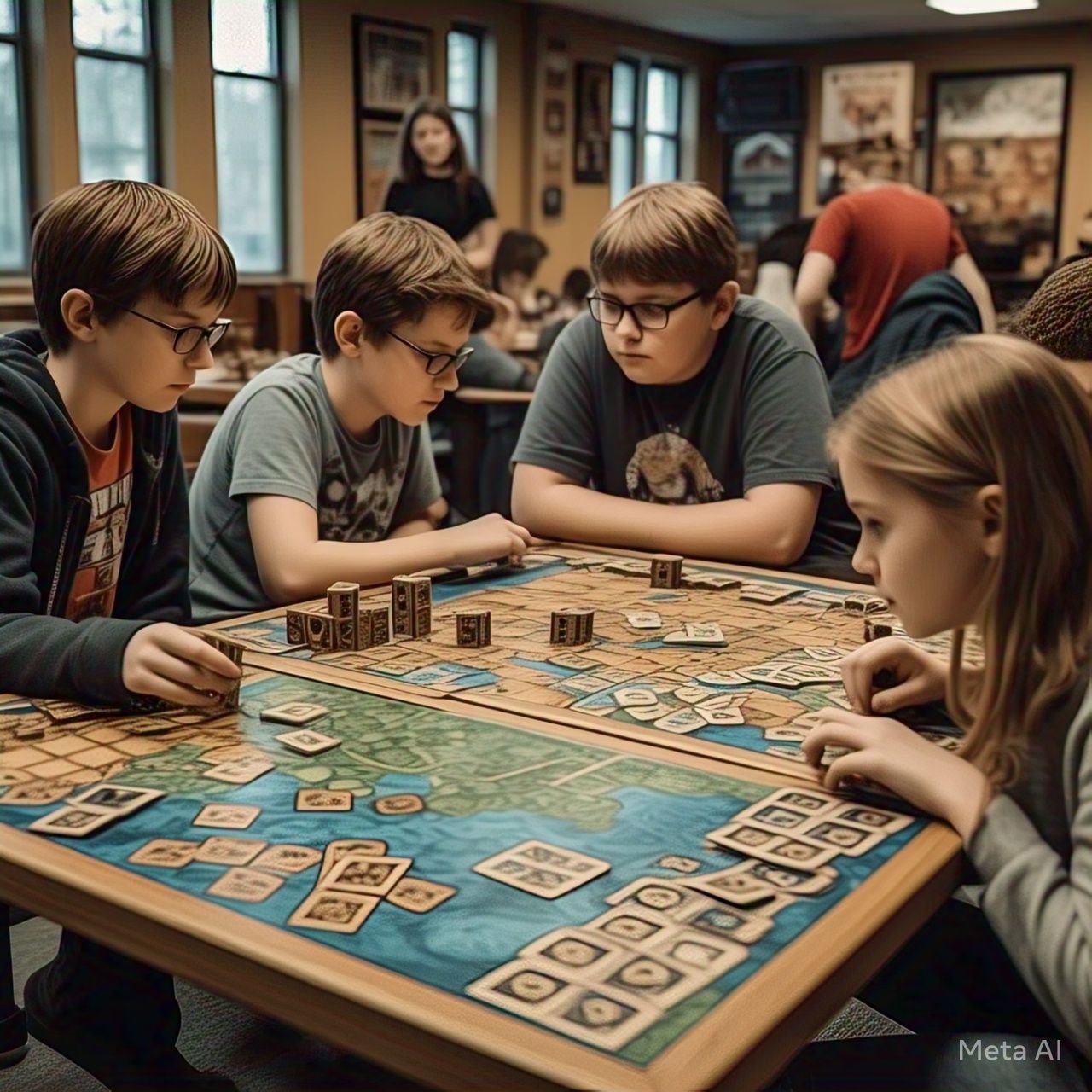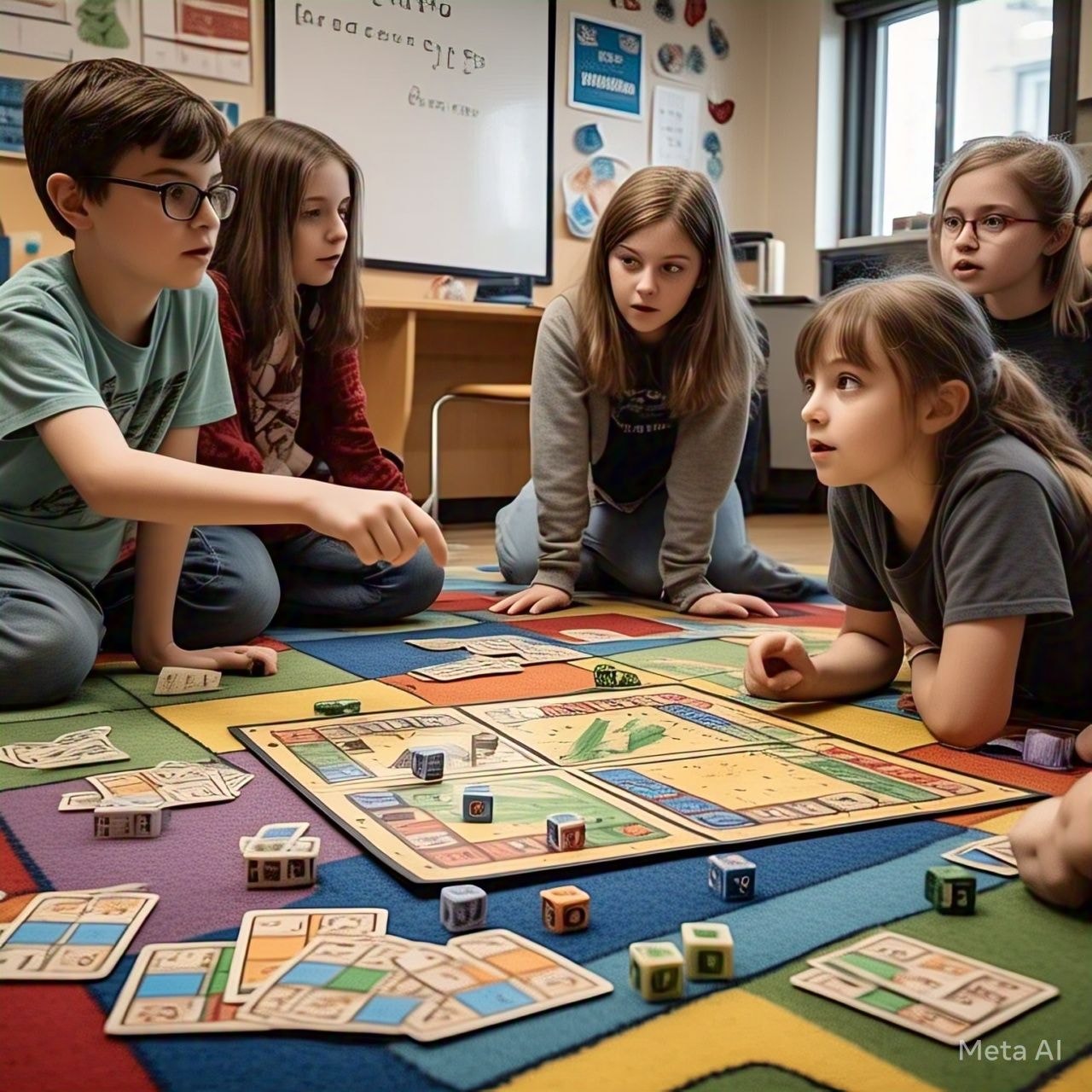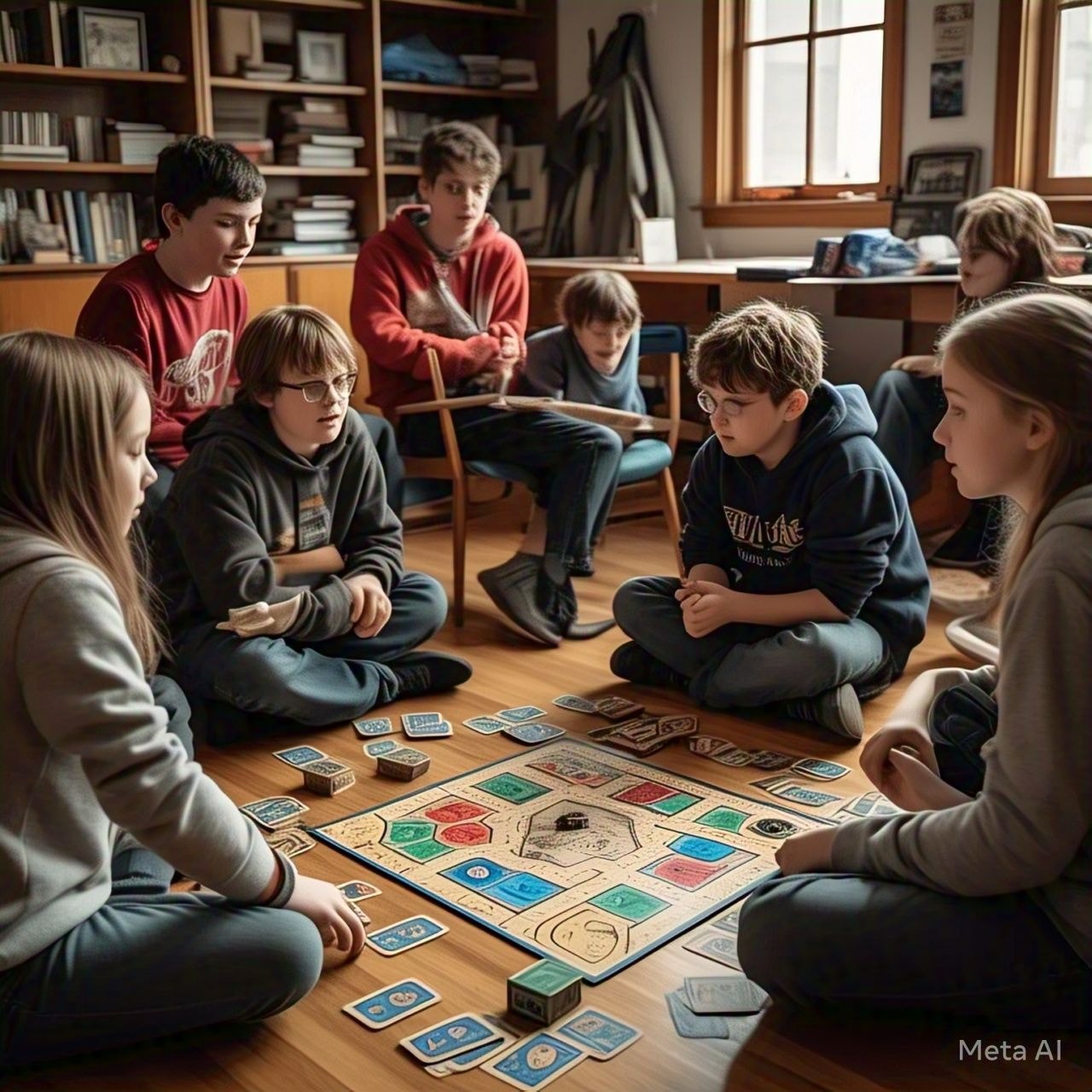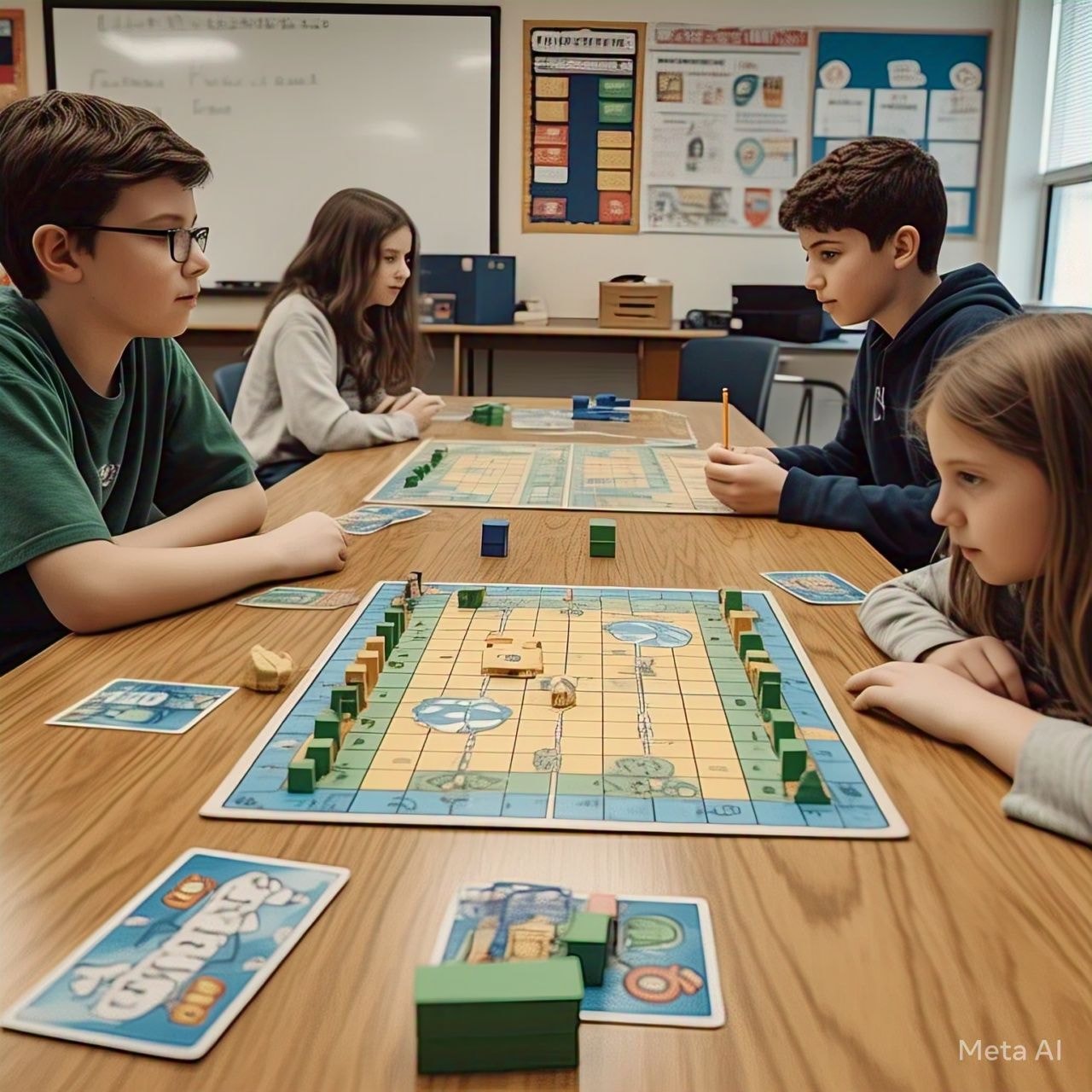4 Tips to Get Better at Playing Board Games
Zeba ParkarShare
STEM board games blend fun with learning, making them a fantastic way to sharpen problem-solving, logic, and strategy skills. Whether you're a fan of classic board games like chess or prefer the complexity of STEM-based games that challenge you with math, physics, and resource management, one thing is clear: mastering any type of board game requires a blend of patience, critical thinking, and strategy.
One of the things I truly enjoy about playing board games is the way they push me to think outside the box. Whether I’m managing game pieces in a complex strategy game or calculating probabilities in a card game, I find that the skills I develop go beyond the game itself—they enhance my critical thinking and decision-making abilities in real life too. Moreover, I noticed that when I play chess or other logic-based games, I become more aware of how planning ahead can significantly improve my chances of victory.
Whether you're a beginner just starting to explore board games or an experienced player looking to refine your abilities, these 4 smart strategies to get better at board games will help you level up your skills and enjoy a more immersive gameplay experience. By the end of this guide, you'll have a clearer idea of how to analyze game mechanics, develop better strategies, and strengthen your STEM skills—all while having fun!
1. Understand the Game Mechanics
I’ve noticed that one of the biggest mistakes players make when approaching a new game is jumping in without understanding the game mechanics. Every board game has its own set of rules, strategies, and interactions, and paying attention to these details can be the key to success. A well-structured game relies on specific mechanics—whether it’s strategic movement, or mathematical problem-solving—and learning how these elements work will give you an edge over your opponents.
Study the Rulebook for an Advantage
I know it can be tempting to dive straight into the game, but reading and analyzing the rulebook is one of the best ways to improve. I’ve observed that skipping this step often leads to confusion mid-game, forcing players to pause and clarify rules. Understanding how game pieces interact on the game board, what actions are allowed, and what strategies work best will help you plan your next move effectively.

Play a Few Practice Rounds
I always find that playing a test round—either solo or with other players—helps me get a better feel for the game. Practice rounds allow you to make mistakes without pressure, helping you determine the best strategies before playing competitively. I’ve also noticed that this is especially helpful in complex games, where different mechanics can take time to fully grasp.
Learn from Experienced Players
Another great way to sharpen your skills is by watching tutorials or learning from Rivals. I’ve personally improved at several classic games like chess and card games just by observing how skilled players plan ahead and adapt their tactics based on their opponents’ moves. You’d be surprised how much you can learn by simply paying close attention to how other players switch things up to gain an advantage.

Recognize Patterns in Gameplay
Lots of games, including classic games like chess and popular card games, follow certain patterns. Once you start identifying these recurring strategies, gameplay becomes smoother and more enjoyable. In my experience, noticing these patterns allows you to break down the game into logical steps, making it easier to predict your opponents’ next moves and develop winning strategies.
Mastering game mechanics is the foundation of becoming a better player. Once you understand how the game works at its core, you can focus on improving your strategy, refining your decision-making skills, and ultimately increasing your chances of victory!
2. Develop a Logical and Strategic Mindset
Playing board games isn’t just about making moves—it’s about thinking ahead and outsmarting your opponents. I’ve observed that the best players don’t just react to what’s happening on the game board—they anticipate what could happen next. Whether you’re managing resources, strategizing in a complex game, or competing in a high-stakes challenge, having a logical and strategic mindset is crucial.
Recognize Patterns and Plan Your Next Move
I’ve learned that propositional logic and critical thinking play a huge role in decision-making. Recognizing patterns, understanding probabilities, and making logical moves can make the difference between victory and defeat. For example, in many games, especially those involving resource management, identifying the most valuable assets early on gives you a major advantage. If you can predict what might happen based on game mechanics, you’ll always be one step ahead.
Avoid Impulsive Decisions
Another thing I’ve seen one player dominate a game simply by carefully considering their actions instead of making rash decisions. Many complex games reward players who take the time to plan ahead, rather than reacting emotionally or impulsively. I’ve noticed that the best way to improve is by taking a break before making big moves—giving yourself time to think through all possible outcomes. Paying attention to these details ensures you make well-informed choices that set you up for success.

Review Past Games to Refine Your Tactics
One of the most helpful ways to improve your gameplay is to analyze past rounds. Reviewing your decisions, and noting what strategies worked can drastically improve your performance in future sessions. I’ve personally found this useful when playing classic games like chess, where a single mistake can shift the entire game.
Learn from Your Opponents and Experiment
It’s easy to get comfortable with one concept or strategy, but sometimes switching things up can be the key to success. I always make it a point to observe other players and learn from their approaches. Some games even allow you to test out different mechanics, helping you gain a deeper understanding of how the game works.
Developing a logical and strategic mindset will not only make you better at playing board games, but it will also enhance your ability to think critically, analyze situations, and make smarter decisions—both in games and in real life!

3. Strengthen Your STEM Skills
Since STEM board games are designed to reinforce science, technology, engineering, and mathematics, improving your understanding of these areas can give you a competitive edge. I’ve noticed that the more familiar you are with these concepts, the better you perform—not just in board games, but in real-world problem-solving too. Applying real-world knowledge to a game makes it even more engaging and helps you play more effectively.
Identify the Game’s Key STEM Concepts
Each STEM board game emphasizes different academic principles. Some focus on mathematics, requiring you to calculate probabilities and manage numbers, while others incorporate science concepts, engineering challenges, or resource management strategies. I’ve found that recognizing these elements early in the game helps me make smarter moves and maximize my chances of winning.
For example, if a game is centered around money management, understanding budgeting principles and counting resources efficiently will make a significant difference. Similarly, if a game involves physics or engineering, having a basic grasp of structural integrity can help you anticipate how different mechanics will play out.

Practice Relevant Skills Outside the Game
I’ve noticed that players who actively strengthen their STEM skills outside of playing board games tend to perform much better. If a game involves math, working on quick calculations and propositional logic exercises can sharpen your decision-making. If the game focuses on engineering, experimenting with simple mechanical projects can provide insights that directly translate into gameplay advantages.
Use Real-World Applications to Reinforce Learning
One of the things I love about STEM board games is how they often mimic real-world problems. This not only makes the games more fun but also provides a great way to apply STEM knowledge in a practical setting.
For example, a game that involves money management can teach valuable budgeting and financial planning skills. Games that involve strategy and probability help you develop analytical thinking, which is especially useful in fields like economics, computer science, and even decision-making in daily life.

Leverage STEM Games for Long-Term Skill Development
One concept I’ve noticed is that STEM board games challenge you to determine probabilities, manage limited resources, and think several steps ahead. College students who play these games regularly tend to develop better analytical and problem-solving skills, which can benefit them in both academics and their professional careers.
By actively engaging with STEM concepts and playing board games that challenge your critical thinking, you’re not just improving at the game—you’re sharpening essential life skills that can give you an advantage in many areas of life.
4. Play Regularly and Challenge Yourself
Like any skill, improving at STEM board games requires consistent practice and exposure to different challenges. I’ve personally found that playing against opponents with diverse playstyles forces me to adapt and think more creatively. The more you play, the better you understand game mechanics, refine your critical thinking, and develop stronger strategies for victory.
Compete Against Skilled Players
One of the fastest ways to improve is by playing against experienced players. Facing stronger opponents pushes you to refine your strategies, anticipate moves, and develop better resource management skills. I’ve noticed that when I play against someone more advanced, I naturally pay more attention to the game board, focus on propositional logic, and become more deliberate with my choices.
For example, in chess—a classic strategy game—you learn much faster when facing someone who is a few steps ahead of you. The same principle applies to STEM board games—you need to push your limits to grow.
Switch Things Up with New Variations
Many board games allow you to switch things up by introducing custom rules, expansions, or advanced difficulty settings. This keeps the gameplay fresh and exciting while also encouraging you to develop new strategies.
Some variations include:
- Playing with fewer or extra game pieces to change the dynamics.
- Adding house rules to create unique challenges.
- Trying advanced modes that require deeper strategy and planning ahead.

I’ve noticed that switching things up prevents stagnation—it forces you to think differently and helps develop a well-rounded approach to problem-solving.
Join Board Game Communities or Tournaments
Playing in a group setting, whether with friends, family, or a competitive board game community, can enhance your decision-making and adaptability. I’ve found that discussing strategies with other players exposes me to new ideas I hadn’t considered before.
Many communities host game nights, online matches, and tournaments, where you can:
- Test your skills against different players.
- Learn from other strategies and gameplay styles.
- Challenge yourself with time limits and resource constraints.
Step Outside Your Comfort Zone
If you want to improve at a complex game, you need to push yourself beyond casual play. I always recommend trying new strategies, experimenting with different game pieces, and breaking out of your comfort zone.
For example, if you always rely on one concept to win, try a different approach in your next session. This could mean focusing on resource management instead of aggressive tactics or playing defensively instead of rushing to win.
Tracking Progress and Achieving Success
To truly master STEM board games, it helps to track your progress over time. I’ve seen players improve significantly when they set specific, measurable goals. This allows you to evaluate your growth and make adjustments to your strategies. Whether you’re playing a classic game like chess or a more complex STEM board game, monitoring your performance is an essential part of the journey toward improvement.

Set Clear Objectives:
Whether it’s winning a certain number of games, improving your understanding of game mechanics, or refining your strategy, setting goals keeps you focused. For instance, aiming to win three games in a row or mastering a particular aspect of the game like resource management helps guide your practice and motivates you to push forward.
Analyze Performance Metrics:
I often track how well I manage my resources, my average score, or how often I achieve victory in a game. By focusing on metrics such as critical thinking, strategies used, or game piece placement, you can start identifying patterns in your gameplay. This reflection allows you to determine areas where you can improve, whether it’s a particular skill or understanding a new game mechanic.
Celebrate Small Wins:
Every improvement—no matter how small—is a step toward mastery. Whether it’s finally understanding a mathematical concept in a STEM board game or recognizing a winning move in a traditional game, acknowledging progress is crucial for maintaining motivation. It helps to look back at where you started and appreciate how far you’ve come, even if the big victories are still ahead.
The key takeaway here is that success in board games doesn’t just come from winning every game—it comes from consistent improvement. Even if you don’t win every round, the learning process itself is rewarding. Plus, the skills you develop in both STEM and traditional games transfer to real-life situations, making every game session a valuable learning experience.
Conclusion
Mastering board games takes dedication, strategy, and a strong understanding of game mechanics. Whether you’re competing in a classic game like chess, solving complex math-based puzzles, or managing resources in a strategy-heavy board game, the key is to stay patient, keep learning, and challenge yourself. Every game presents an opportunity to sharpen critical thinking, logic, and decision-making skills—all while having fun.
By following these four smart strategies, you’ll not only improve your gameplay but also develop real-world problem-solving skills that can benefit you beyond the game board.
So, grab your favorite STEM board game, gather your friends or family, and start practicing! The more you play, the better you’ll become—and the more fun you’ll have along the way. Happy gaming!